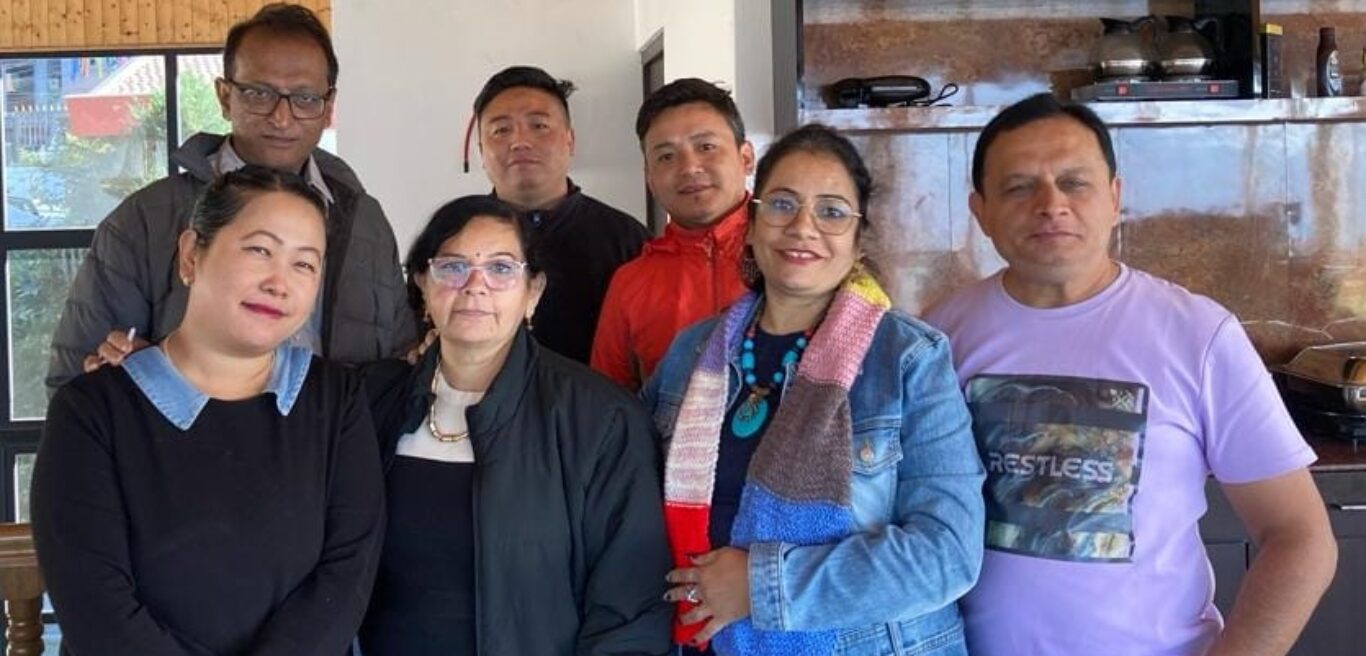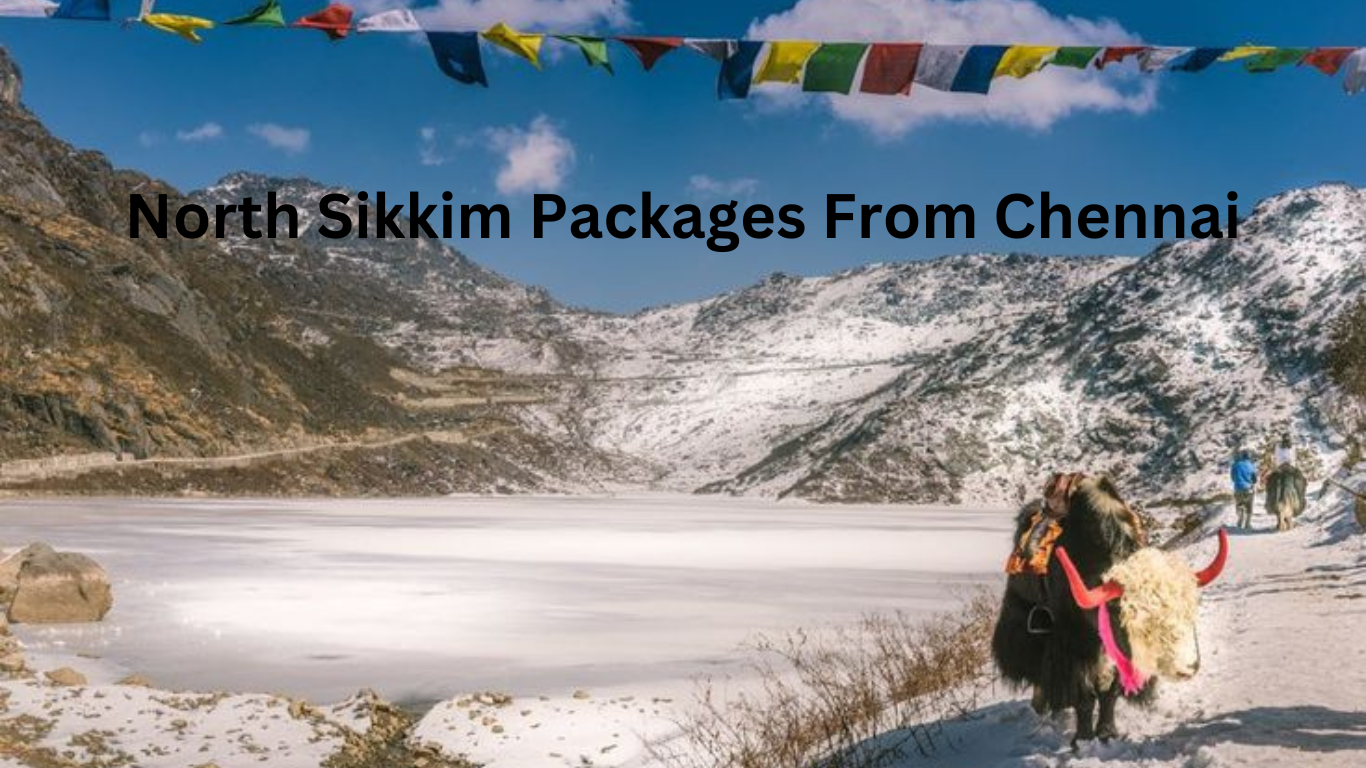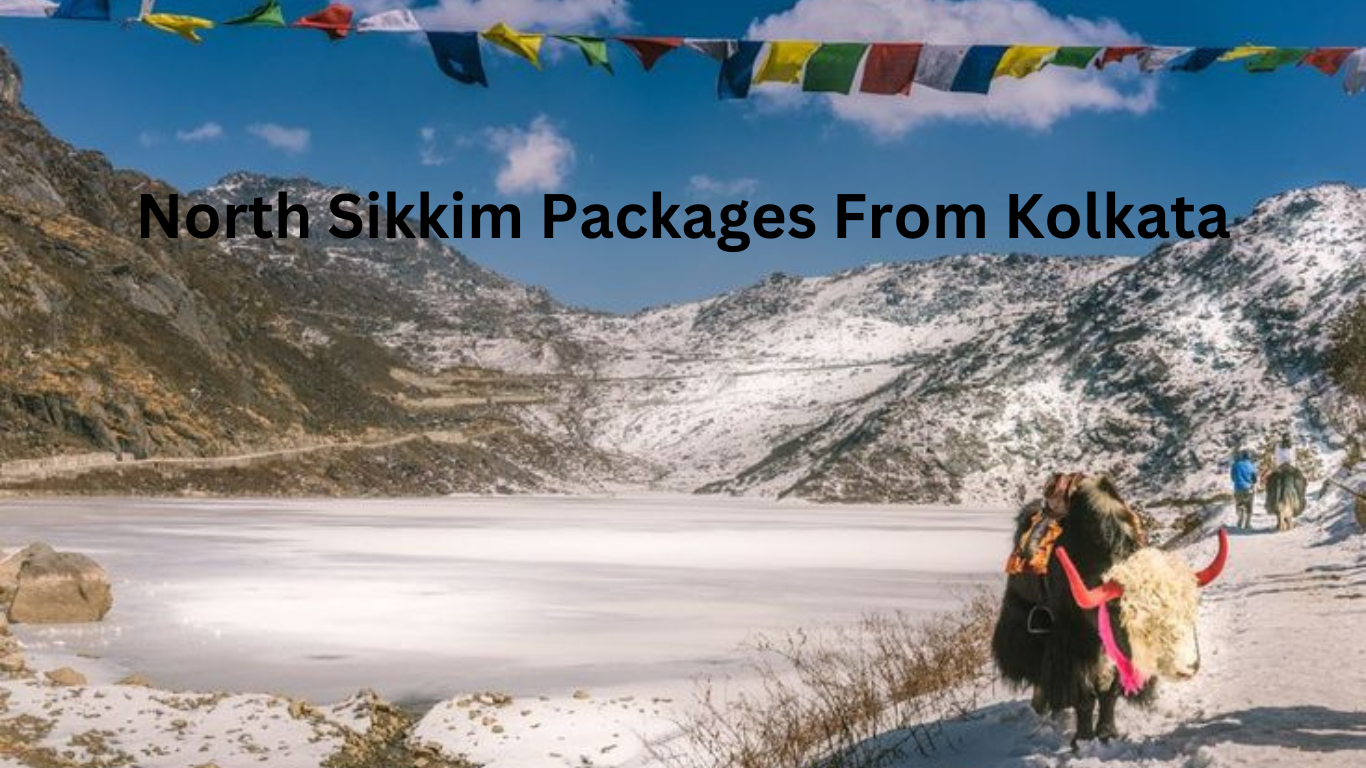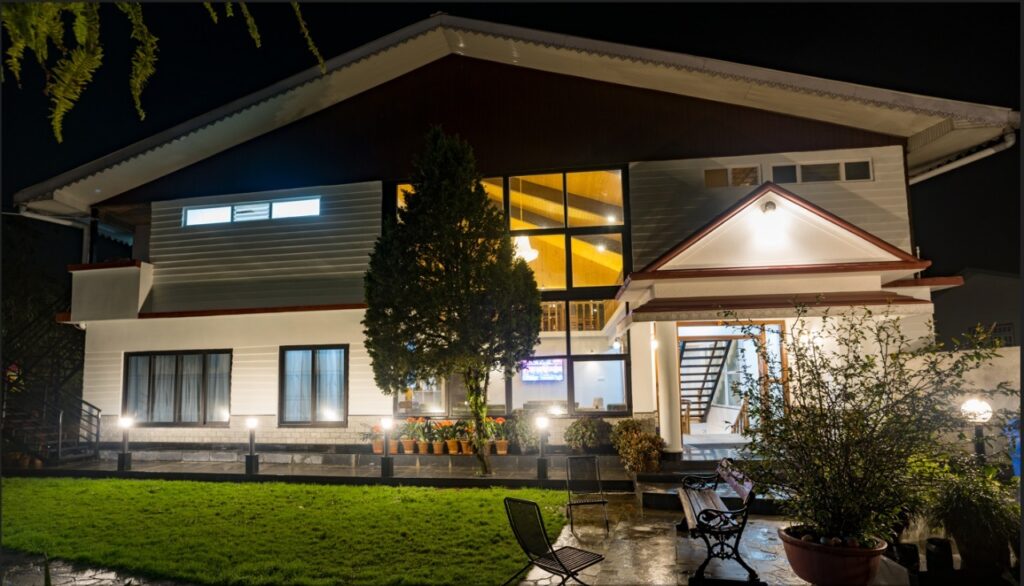North sikkim tour itinerary overview
A North Sikkim tour is a mesmerizing journey into one of India’s most enchanting regions, where pristine natural beauty and rich cultural heritage converge. Nestled in the lap of the Himalayas, North Sikkim offers a captivating mix of soaring mountains, lush valleys, alpine meadows, cascading waterfalls, and charming villages. The tour promises an adventure that unveils the raw and untouched beauty of the Eastern Himalayas.
yours tours and travel – dmc for sikkim , Provide their customer more than 200 customized north Sikkim itinerary for trip to Sikkim

A 10-day tour package for North Sikkim can offer a mesmerizing experience, allowing you to explore the pristine landscapes, rich culture, and vibrant traditions of this region. Here’s a detailed overview of a North Sikkim tour itinerary for 10 days:
QUICK INFO ABOUT SIKKIM
| Area | 4226 sq km |
|---|---|
| Coordinates | 27°31′N 88°32′E |
| Language | Nepali, Bhutia and Lepcha |
| Popular Treks of North Sikkim | Green Lake Trek, Tosar lake Trek, |
| Popular Places to Visit in North Sikkim | Gurudongmar lake, Lachung, Lachen, Yumthang Valley, Seven Sisters Waterfall, Cholamu Lake, Chungthang and Mangan etc. |
| Best Time to Visit North Sikkim | March to May and October to Mid-December |
| Popular Lakes of North Sikkim | Cholamu Lake and Gurudongmar Lake |
NORTH SIKKIM ITINERARY
Day 1:
Arrival in Gangtok
Description: Arrive in Gangtok, the capital of Sikkim. Explore the local markets and get acclimatized to the high altitude. Enjoy the pleasant weather and beautiful views of the surrounding mountains.
Day 2:
Gangtok to Lachung
Description: Depart from Gangtok and drive to Lachung, a picturesque mountain village. En route, visit the Seven Sisters Waterfall and Singhik Viewpoint for breathtaking vistas of Mt. Khangchendzonga and other peaks.
Day 3:
Lachung to Yumthang Valley and Zero Point
Description: Embark on an early morning excursion to Yumthang Valley, known as the “Valley of Flowers.” Enjoy the stunning alpine landscapes and hot springs. Later, head to Zero Point, where you can witness snow-capped mountains up close.
Day 4:
Lachung to Gangtok
Description: Return to Gangtok from Lachung. Spend the evening strolling through the MG Road, a bustling street filled with shops, eateries, and souvenir stalls.
Day 5:
Gangtok Local Sightseeing
Description: Explore Gangtok’s local attractions, including Rumtek Monastery, Enchey Monastery, and the Namgyal Institute of Tibetology. Take a cable car ride to get a panoramic view of the city.
Day 6:
Gangtok to Lachen
Description: Drive to Lachen, another charming village in North Sikkim. En route, visit the picturesque Phodong Monastery and the high-altitude Gurudongmar Lake (subject to weather and permits).
Day 7:
Lachen to Thangu and Chopta Valley
Description: Go on a day trip to Thangu and Chopta Valley, surrounded by stunning snow-capped peaks. Experience the pristine beauty of these high-altitude regions.
Day 8:
Lachen to Gangtok
Description: Return to Gangtok from Lachen. Relax and explore the local markets for some souvenir shopping.
Day 9:
Gangtok to Tsomgo Lake and Baba Mandir
Description: Visit the famous Tsomgo Lake, a glacial lake located at an altitude of 12,310 feet. Proceed to Baba Mandir, a spiritual site dedicated to a revered soldier. These are must-visit places near Gangtok.
Day 10:
Departure from Gangtok
Description: Bid farewell to the beautiful North Sikkim region and depart from Gangtok with unforgettable memories.
Tips for North Sikkim Tour Packages
Permits:
Obtain necessary permits for Gurudongmar Lake, Tsomgo Lake, and other restricted areas in advance.Weather:
Pack accordingly, as North Sikkim can get cold even in summers.Altitude Sickness:
Be aware of altitude sickness and take necessary precautions.Local Cuisine:
Try traditional Sikkimese dishes like Thukpa, Momos, and Gundruk.
Related North Sikkim Tour Packages









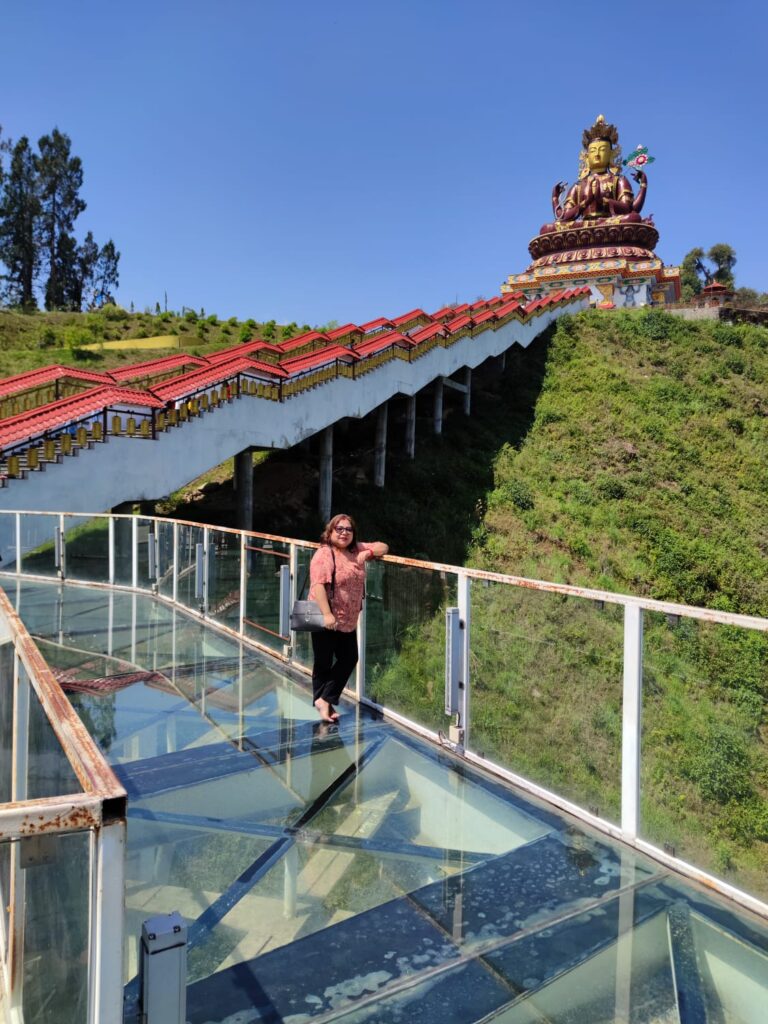


A North Sikkim tour packages is a mesmerizing journey into one of India’s most enchanting regions, where pristine natural beauty and rich cultural heritage converge. Nestled in the lap of the Himalayas, North Sikkim offers a captivating mix of soaring mountains, lush valleys, alpine meadows, cascading waterfalls, and charming villages. The tour promises an adventure that unveils the raw and untouched beauty of the Eastern Himalayas.
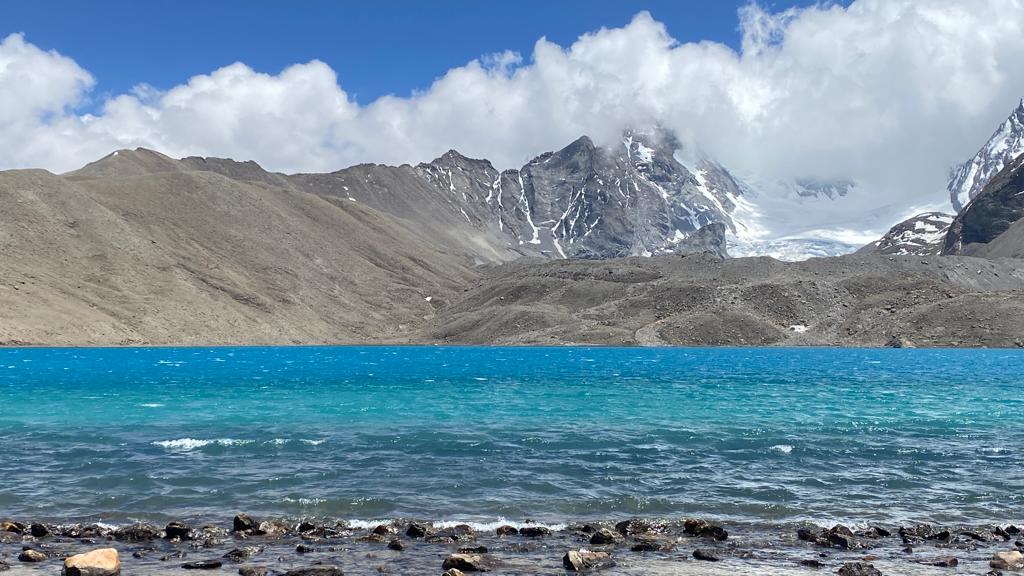
TIPS TO KNOW BEFORE YOU CHOOSE NORTH SIKKIM ITINERARY
North Sikkim is a stunning region known for its breathtaking landscapes, high-altitude lakes, and serene mountainous terrain. However, it’s important to plan your trip carefully, as it requires some preparation and considerations due to its remote and rugged nature. Here are some tips to keep in mind before choosing a North Sikkim itinerary:
Permits and Documentation:
- You will need permits to visit North Sikkim, especially for areas like Lachung, Lachen, and Gurudongmar Lake. These permits can be obtained through the Sikkim Tourism Office or your travel agency.
Acclimatization:
- North Sikkim is at high altitudes, and you may experience altitude sickness. Spend your first day in Gangtok or another lower-altitude location to acclimatize before heading to higher elevations.
Choose a Reputable Tour Operator:
- It’s advisable to book your North Sikkim tour with a reputable tour operator or travel agency. They can help with permits, accommodations, transportation, and provide local guides.
Travel Season:
- North Sikkim is best visited during the warmer months, from March to June and from September to November. Winter can be harsh, and many places are inaccessible due to snow.
Pack Appropriately:
- Pack warm clothing, especially if you plan to visit in colder months. Layers are essential, as temperatures can vary significantly throughout the day.
- Sturdy, waterproof boots or shoes are recommended for trekking and navigating uneven terrain.
Medications and First Aid:
- Carry basic medications, including those for altitude sickness, diarrhea, and headaches. Consult a doctor before the trip if you have any medical conditions.
Cash and Connectivity:
- ATMs and mobile connectivity may be limited in remote areas of North Sikkim. Carry enough cash for expenses, as credit cards may not be widely accepted.
Road Conditions:
- Roads in North Sikkim can be challenging due to the mountainous terrain. Be prepared for long and bumpy rides, and consider motion sickness medication if needed.
Photography and Wildlife:
- North Sikkim offers incredible opportunities for photography, so bring your camera and accessories.
- Respect the local wildlife, including the yaks and other animals you may encounter.
Environmental Consciousness:
- Preserve the pristine environment by not littering or disturbing the natural habitats. Follow eco-friendly practices during your stay.
Food and Water:
- Be cautious about the water and food you consume. Stick to bottled or purified water, and eat at reputable restaurants and hotels.
Local Customs and Culture:
- Learn about and respect the local customs, traditions, and etiquette of the region. Dress modestly when visiting monasteries and religious sites.
Flexible Itinerary:
- Be prepared for changes in your itinerary due to weather conditions or unforeseen circumstances. Flexibility is key when traveling in this region.
Glimpse of North Sikkim Places
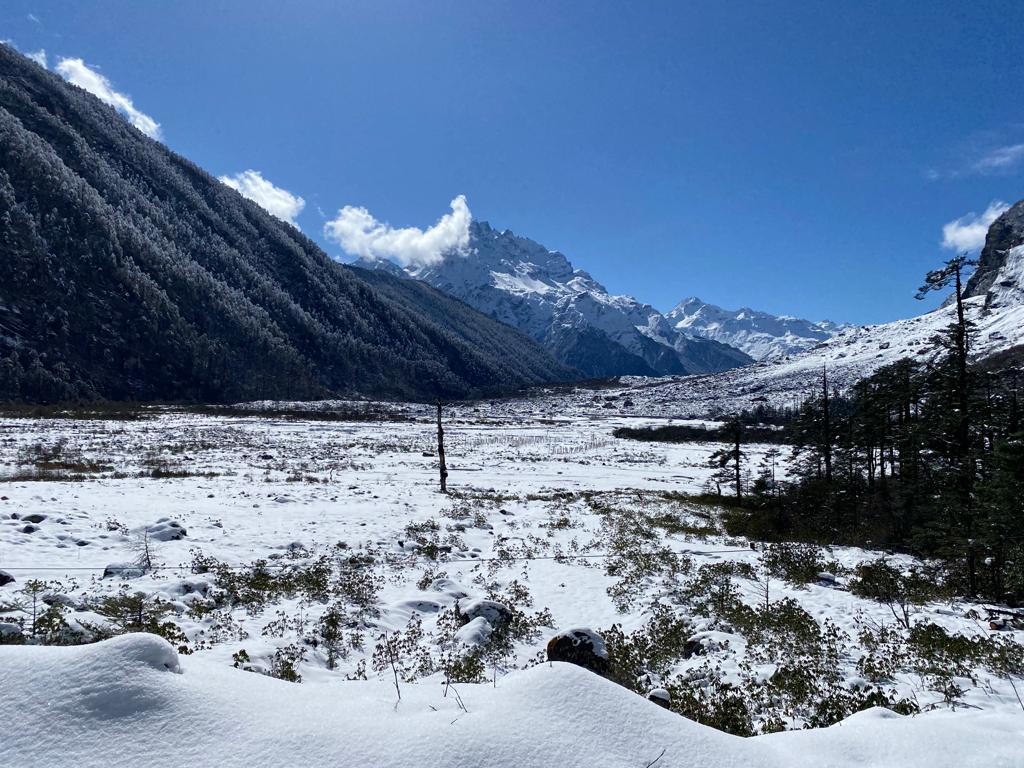
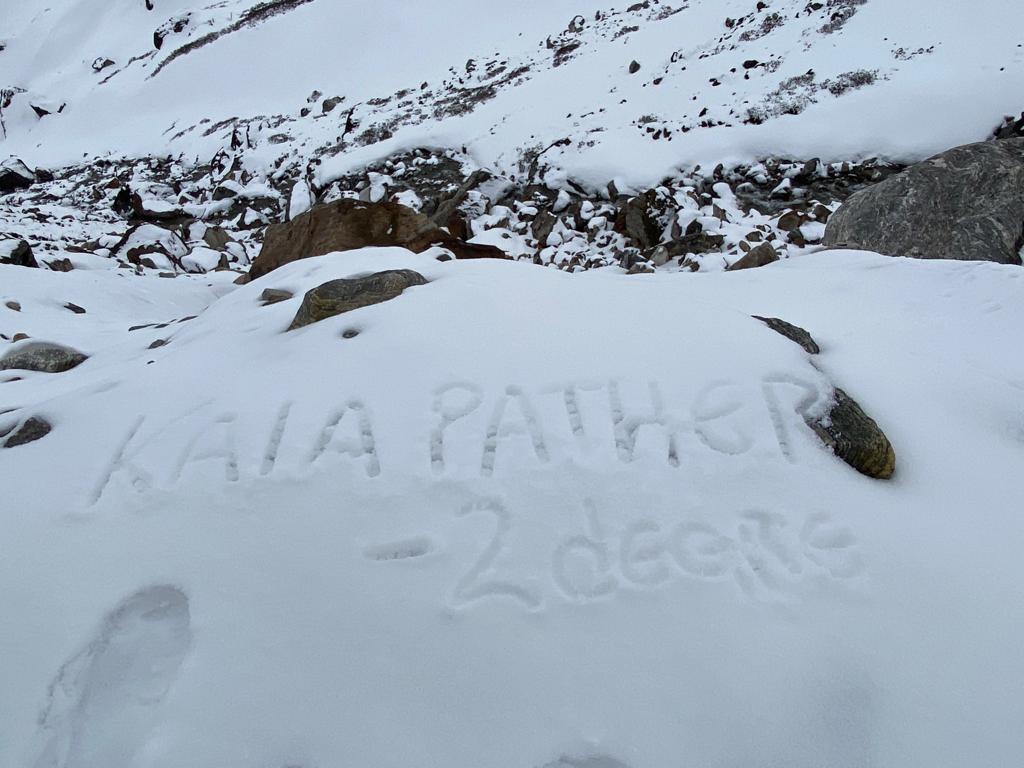
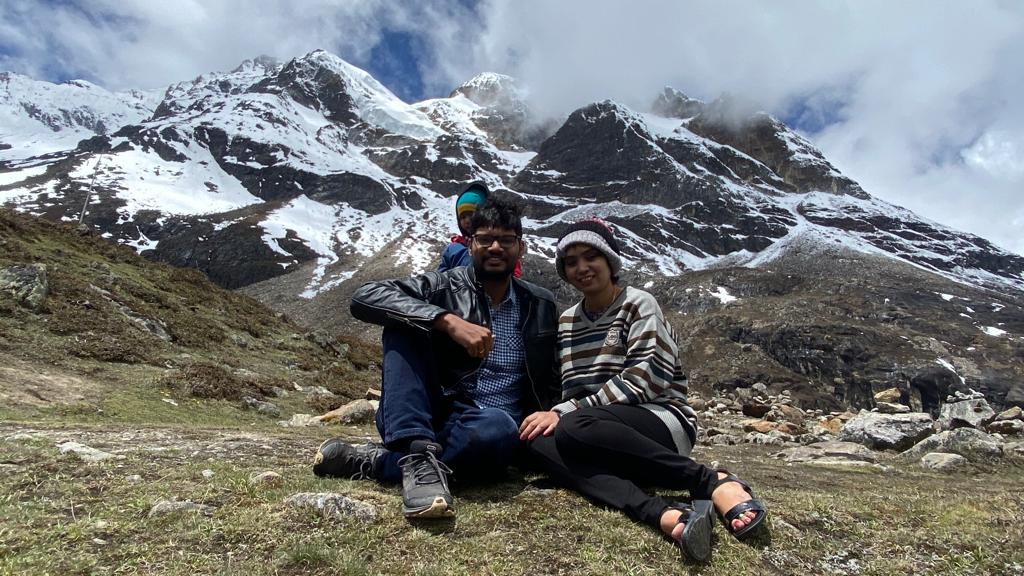

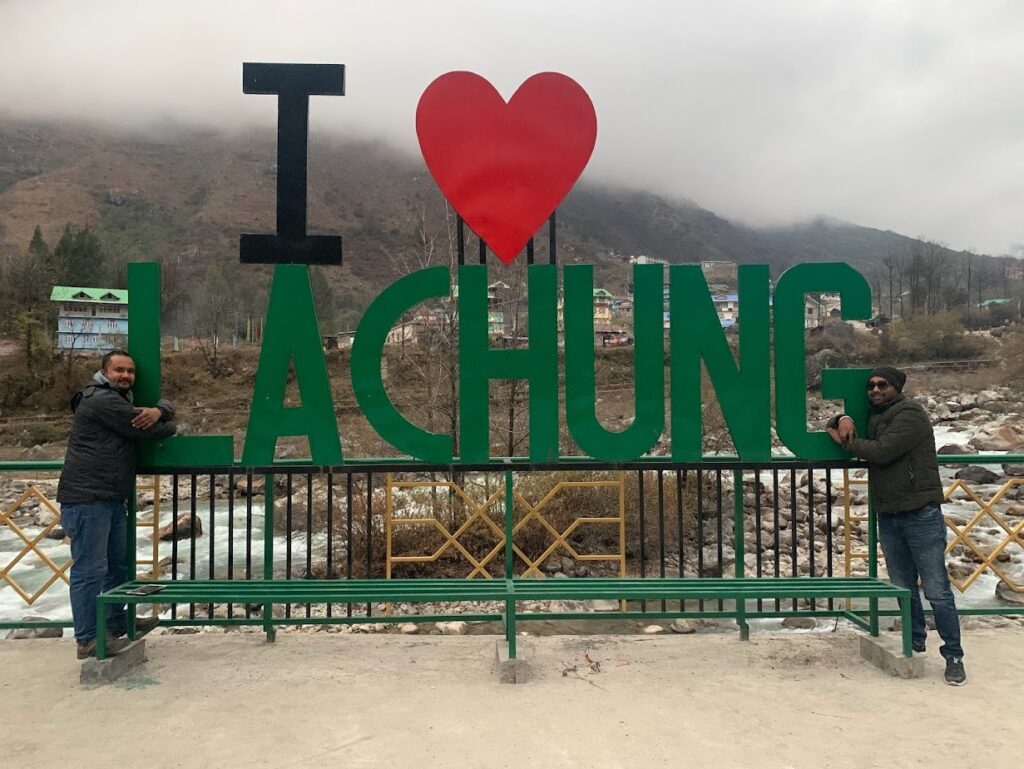
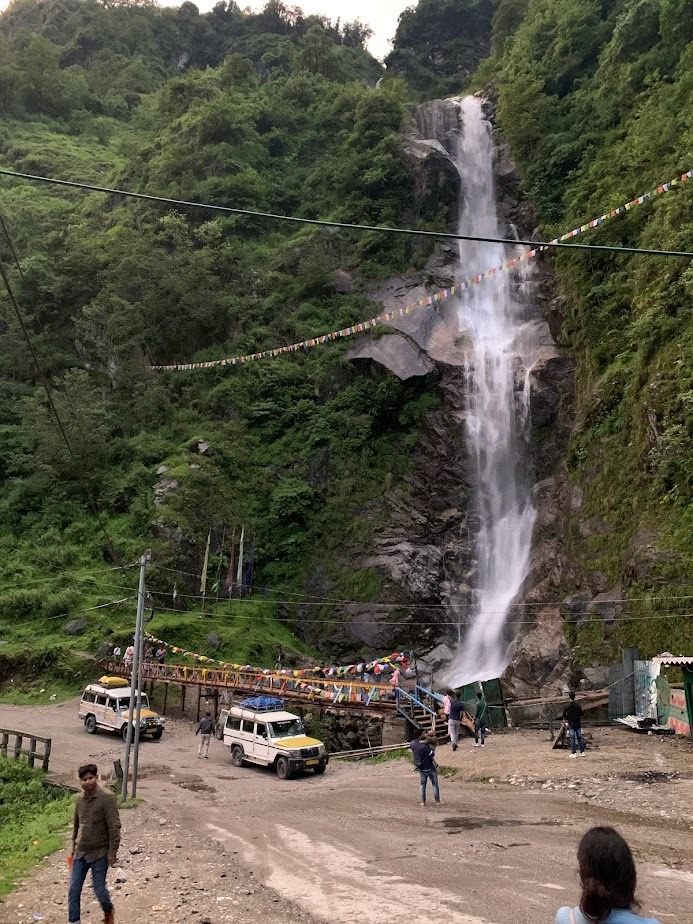
Beautiful North Sikkim Places
In a world teeming with cities of steel and glass, there lies a jewel nestled amidst the colossal Himalayan ranges, waiting to share its secrets. This jewel is none other than Sikkim, a mosaic of cultures, traditions, and scenic vistas that defy imagination. And who better to guide you through this paradise than Your Tours & Travels, the premier DMC for Sikkim, promising not just a journey, but an experience.
Every traveller’s quest starts with a question – “What are the best places to visit in North Sikkim?” With Your Tours & Travels, this question does not merely find an answer; it embarks on a narrative. Sikkim is not just about places; it is about stories. Stories that transcend generations, stories that make you feel alive, and stories that let you discover yourself amidst the vastness of nature. “The world is a book, and those who do not travel read only one page.”- Augustine
Questions related to Sikkim
- Which is cheaper Darjeeling or Gangtok?
- Accommodation: Both Darjeeling and Gangtok offer a range of accommodation options, from budget guesthouses to luxury hotels. The prices can vary significantly depending on the type of accommodation and its location within the city. Generally, Gangtok may have slightly lower accommodation costs compared to Darjeeling, but this can vary based on factors such as the time of year and specific accommodations.
- Food: Food prices can also vary, but in general, eating out at local restaurants and street food stalls is relatively affordable in both Darjeeling and Gangtok. However, dining at upscale or touristy restaurants can be more expensive.
- Transportation: The cost of transportation between Darjeeling and Gangtok can vary depending on the mode of transport you choose. Shared taxis and buses are common ways to travel between the two cities, and they are usually reasonably priced. However, if you opt for private transportation or hire a car, it will be more expensive.
- Sightseeing and Activities: The cost of sightseeing and activities will depend on your interests and the specific places you want to visit. Both cities offer various attractions, some of which may require entrance fees. Activities like trekking or guided tours will also have their own costs.
- Shopping: Darjeeling and Gangtok are known for their local handicrafts and souvenirs. Prices for these items can vary widely based on their quality and where you purchase them. Bargaining is common in local markets, so you may be able to get better deals with some negotiation skills.
- How to plan Sikkim Darjeeling tour?
- Set a Budget:
- Determine how much you're willing to spend on your trip. This will help you make choices regarding accommodations, transportation, and activities.
- Decide on the Duration:
- Decide how many days you want to spend in Sikkim and Darjeeling. A typical itinerary is around 7-10 days, but you can adjust based on your preferences.
- Research and Create an Itinerary:
- Research the places you want to visit in Sikkim and Darjeeling. Common attractions include Gangtok, Pelling, Tsomgo Lake, Nathula Pass, Darjeeling, and Tiger Hill.
- Create a rough itinerary, allocating days to each location and activity. Make sure to include travel time between destinations.
- Plan the Best Time to Visit:
- Consider the weather when planning your trip. The best time to visit is typically from March to June and from September to November when the weather is pleasant.
- Book Flights and Accommodations:
- Book your flights to Bagdogra Airport (IXB) or nearest airport, depending on your point of entry.
- Reserve accommodations in advance, especially during the peak tourist season. Choose hotels, guesthouses, or homestays that fit your budget and preferences.
- Arrange Transportation:
- Decide on how you will travel between destinations. Options include hiring a private cab, using public buses, or renting a car.
- Consider hiring a local guide for certain activities or treks to make the most of your experience.
- Obtain Necessary Permits:
- Check if you need permits for specific areas, such as Nathula Pass. These permits can be obtained through the local tourism department or your travel agency.
- Pack Accordingly:
- Pack clothing suitable for the weather during your visit. Layers are advisable due to temperature variations.
- Don't forget essential items like comfortable walking shoes, medications, and necessary documents.
- Plan Activities and Tours:
- Research and book activities and tours in advance, such as trekking, river rafting, or tea estate visits.
- Check for any cultural festivals or events happening during your visit that you might want to attend.
- Learn About Local Culture:
- Familiarize yourself with the local customs, traditions, and etiquette to show respect to the local people.
- Be Flexible:
- Be prepared for changes in plans due to unforeseen circumstances like weather conditions. Have a backup plan for such situations.
- Stay Informed About COVID-19 Guidelines:
- Keep track of any travel restrictions, health protocols, and safety guidelines related to COVID-19 that may apply during your visit.
- Travel Insurance:
- Consider purchasing travel insurance to cover unexpected emergencies or trip cancellations.
- Enjoy Your Trip:
- Finally, relax, enjoy the breathtaking scenery, and immerse yourself in the culture and beauty of Sikkim and Darjeeling.
- Set a Budget:
- Sikkim and Gangtok same?Sikkim and Gangtok are not the same, but they are closely related. Sikkim is a state in northeastern India, while Gangtok is the capital and largest town of Sikkim. Here's a bit more detail about each:
- Sikkim:
- Sikkim is a state located in the northeastern part of India, nestled in the eastern Himalayas.
- It is known for its stunning natural beauty, including lush green valleys, snow-capped peaks, pristine lakes, and dense forests.
- Sikkim is one of the smallest states in India by land area but is rich in biodiversity and cultural diversity.
- The state offers a wide range of attractions and activities, including trekking, mountaineering, wildlife viewing, and visits to monasteries and historical sites.
- Sikkim shares its borders with Tibet (China) to the north, Bhutan to the east, Nepal to the west, and the Indian state of West Bengal to the south.
- Gangtok:
- Gangtok is the capital and largest town in Sikkim.
- It serves as the political, cultural, and economic center of the state.
- Gangtok is situated in the eastern part of Sikkim and is known for its scenic beauty and pleasant climate.
- The town is surrounded by the Himalayan ranges and offers breathtaking views of the mountains.
- Gangtok is a popular tourist destination and serves as a gateway for travelers exploring various parts of Sikkim.
- It has a mix of modern amenities and traditional charm, with attractions like monasteries, markets, and viewpoints.
- Sikkim:
- How many days required to visit Gangtok?The number of days required to visit Gangtok can vary depending on your interests, the specific places you want to explore in and around Gangtok, and your travel pace. However, a typical itinerary for Gangtok usually ranges from 2 to 4 days. Here's a general guideline for how you can plan your time in Gangtok:
- 2 Days in Gangtok:
- If you have limited time, you can spend a quick two days in Gangtok to see some of its major attractions. This would involve a somewhat rushed schedule but can give you a taste of the town.
- Day 1: Explore the city center, visit attractions like MG Marg (the main market), Enchey Monastery, and Hanuman Tok.
- Day 2: Take a day trip to the nearby attractions, such as Rumtek Monastery, Banjhakri Falls, and the Namgyal Institute of Tibetology.
- 3 Days in Gangtok:
- Spending three days in Gangtok allows for a more relaxed experience, and you can explore additional places.
- Day 1 and Day 2: Follow the itinerary for a 2-day trip, as mentioned above.
- Day 3: Visit the Tsomgo Lake and Baba Mandir (if they are open to tourists; permits are required), or you can explore more of Gangtok's local culture and cuisine.
- 4 Days or More:
- With four or more days in Gangtok, you can explore the town at a leisurely pace and also consider nearby destinations like Nathula Pass and Changu Lake.
- Day 1 and Day 2: Follow the itinerary for a 2-day trip in Gangtok.
- Day 3: Visit Tsomgo Lake and Baba Mandir (if you haven't already) or explore nearby areas like Tashi Viewpoint, Ganesh Tok, or the Flower Exhibition Centre.
- Day 4: Take a day trip to Nathula Pass (if it's open to tourists during your visit; permits are required), which is a high-altitude border pass with China. You can also visit Changu Lake on the way.
- 2 Days in Gangtok:
- What is the best time to visit Sikkim?The best time to visit Sikkim depends on your preferences and the experiences you seek. Sikkim offers different attractions and experiences throughout the year due to its diverse geography and varying climates. Here are the main seasons and their characteristics:
- Spring (March to May):
- Spring is one of the most popular times to visit Sikkim. The weather is pleasant, and the region's flora comes alive with blooming rhododendrons, orchids, and other flowers.
- This is an ideal time for trekking and outdoor activities. Many trekking routes are accessible, and you can enjoy clear views of the Himalayan peaks.
- Temperatures during spring are comfortable, with daytime temperatures ranging from 15°C to 25°C (59°F to 77°F).
- Summer (June to August):
- Summer in Sikkim is the monsoon season, characterized by heavy rainfall. The region is lush and green during this time, but it can be challenging for outdoor activities due to rain and landslides.
- While some tourists avoid this season, it's a great time for those interested in observing the vibrant landscapes and experiencing the local culture.
- Be prepared for occasional road closures and disruptions in transportation during heavy rains.
- Autumn (September to November):
- Autumn is another excellent time to visit Sikkim. The monsoon rains have subsided, leaving behind clear skies and lush landscapes.
- The weather is cool and comfortable, making it perfect for sightseeing, trekking, and other outdoor activities.
- Autumn is also the harvest season, and you can witness local festivals and cultural events.
- Clear views of the Himalayan peaks can be enjoyed during this season.
- Winter (December to February):
- Winter in Sikkim is cold, with temperatures dropping significantly, especially at higher altitudes. In Gangtok, daytime temperatures may range from 5°C to 15°C (41°F to 59°F).
- This is a great time for travelers who enjoy the charm of snowy landscapes and fewer crowds.
- Many high-altitude areas may be covered in snow, making it ideal for winter sports like skiing in areas like Yumthang Valley.
- Some high-altitude passes like Nathula Pass may be closed due to heavy snowfall.
- Spring (March to May):
- Which is colder Sikkim or Darjeeling?Sikkim, as a state, encompasses various elevations and climates, so the temperature can vary depending on the specific location and time of year. In general, Sikkim has a wide range of temperatures, from subtropical in the lower regions to alpine in the higher areas. Darjeeling, on the other hand, is known for its cooler climate due to its higher elevation. It's a hill station located at an altitude of around 6,700 feet (2,042 meters) above sea level, and its climate is considered more temperate compared to many parts of Sikkim. In terms of general temperature comparisons:
- Darjeeling: Darjeeling tends to be cooler than the lower-altitude areas of Sikkim. Summers in Darjeeling are mild, with daytime temperatures ranging from 15°C to 20°C (59°F to 68°F). Winters are colder, with temperatures dropping to around 2°C to 7°C (36°F to 45°F). It can occasionally experience snowfall during the winter months.
- Sikkim: The temperatures in Sikkim can vary widely based on the elevation. In places like Gangtok (the capital of Sikkim) at a lower elevation, the temperatures are milder and more moderate, similar to Darjeeling. However, in higher-altitude areas of Sikkim, such as Lachung, Lachen, or areas around Nathula Pass, temperatures can be significantly colder, especially during the winter months, often dropping below freezing.
- Does Gangtok have snow?Yes, Gangtok, the capital and largest town of Sikkim, does receive snowfall, but it typically occurs during the winter months. Gangtok is situated at an elevation of approximately 5,410 feet (1,650 meters) above sea level, which means that while it does experience cold weather in the winter, it doesn't receive heavy or prolonged snowfall like higher-altitude areas in Sikkim. Here's what you can expect regarding snowfall in Gangtok:
- Winter Snowfall: Gangtok may experience occasional light snowfall during the winter months, particularly in December, January, and February. However, the snowfall in Gangtok is usually not heavy, and it may not accumulate significantly on the ground.
- Snow-Covered Surroundings: While Gangtok itself may not be covered in deep snow, the surrounding areas at higher elevations, such as Tsomgo Lake (Changu Lake), Nathula Pass, and higher mountain regions, often receive more substantial snowfall and can provide a snowy landscape during the winter.
- Road Closures: When there is snowfall, especially in the higher regions of Sikkim, it can lead to temporary road closures, including the Nathula Pass route, due to safety concerns. It's important to check road conditions and any travel advisories if you plan to visit these areas during the winter.
- Can we cover Sikkim in 4 days?Covering the entire state of Sikkim in just 4 days would be quite challenging and rushed, given the diverse attractions and landscapes it offers. Sikkim is known for its stunning natural beauty, cultural heritage, and various places of interest, so it's best explored at a more leisurely pace to fully appreciate what it has to offer. However, if you have only 4 days and want to see some of the highlights, here's a very basic itinerary you could consider: Day 1: Arrival in Gangtok
- Arrive at Bagdogra Airport or New Jalpaiguri Railway Station and proceed to Gangtok.
- Explore Gangtok's city center, including MG Marg and local markets.
- Visit attractions in and around Gangtok, such as Enchey Monastery, Hanuman Tok, and Tashi Viewpoint.
- Explore local culture and cuisine.
- Take a day trip to Tsomgo Lake (Changu Lake) and Baba Harbhajan Singh Mandir.
- Enjoy the scenic beauty of the lake and surrounding areas.
- Depending on your departure time, you can either explore more of Gangtok or head back to the airport or railway station for your onward journey.
Our blogs
North Sikkim Packages From Chennai
North Sikkim Packages From Chennai Explore the untouched beauty of North Sikkim with our expertly crafted packages designed to give you an unforgettable travel experience.…
50 places to visit in Sikkim
50 places to visit in Sikkim Gurudongmar Lake – 50 Places To visit in Sikkim Gurudongmar Lake located at 17,800 feet in North Sikkim is…
North Sikkim Packages From Kolkata
North Sikkim Packages From Kolkata Duration: 6 Nights / 7 Days Starting Price: ₹19,999 per person Best north sikkim packages from Kolkata Itinerary Overview Day…
DMC FOR NORTH SIKKIM ITINERARY
Sikkim is not just a destination; it is an emotion, an experience, a story waiting to be told. And who better to narrate this story than Your Tours and Travels, the best DMC for Sikkim?
We do not just sell tour packages; we create memories. Memories of that first glimpse of Kanchenjunga, the aroma of Sikkimese delicacies, the sound of Buddhist chants, and the feel of the cold mountain breeze on your face.
So, are you ready to embark on a trip to Sikkim that you will cherish forever? Pack your wanderlust and let us guide you through the mesmerizing lanes of Sikkim. With Your Tours & Travels, your dream trip to Sikkim awaits. Let us make it unforgettable together!
Why Choose Us Your Sikkim Travel Agent ?
- Expertise and ExperienceWith years of experience in the industry, we possess in-depth knowledge and expertise in crafting exceptional Sikkim tour packages. Our team of professionals understands the region intricately, allowing us to design itineraries that showcase the best of Sikkim’s landscapes, culture, and attractions.
- Customized Tour PackagesWe understand that every traveler has unique preferences and requirements. That’s why we offer tailor-made tour packages to cater to your specific needs. Whether you seek adventure, relaxation, or cultural immersion, we can curate a personalized itinerary that ensures an unforgettable journey.
- Extensive Network and ResourcesAs a prominent DMC for Sikkim, we have established a vast network of reliable partners, including accommodations, transportation providers, and local guides. This enables us to offer seamless travel experiences, top-notch services, and exclusive access to hidden gems throughout your Sikkim adventure.
- Professional Guides and StaffOur team of experienced guides and staff members are passionate about Sikkim and dedicated to providing exceptional customer service. They possess extensive knowledge about the region’s history, culture, and natural wonders, ensuring that you receive valuable insights and a smooth travel experience.
- Commitment to Quality and SafetyWe prioritize the safety and satisfaction of our clients above all else. Our commitment to quality is reflected in the meticulous planning of our tours, the selection of trusted partners, and adherence to the highest safety standards. Your well-being is our utmost priority throughout your Sikkim journey.
OUR HOTEL IN NORTH SIKKIM
Table of Contents
Toggle
